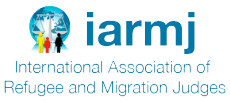Seventh Appellant: The court determined that the Namibian Government unlawfully brought the seventh appellant into Namibian jurisdiction. It rejected the argument that Namibian agents did not perform a sovereign act on Botswana territory, acknowledging the appellant's restricted freedom and coercive power exercised by Namibian agents. Namibian authorities' actions were deemed a violation of international law, constituting a sovereign act regardless of Botswana's sanction. The State failed to prove jurisdiction for trying the seventh appellant for offenses.
Other Appellants: The court affirmed that these appellants were appropriately received by Namibian officials on Namibian territory. Alleged collusion lacked evidence and was denied by State witnesses. Arguments about non-compliance with Namibian immigration law were dismissed, as a foreign country's return of Namibian citizens does not imply Namibian involvement, and the failure to enforce the Immigration Control Act upon their return doesn't imply complicity. The absence of solicitation by Namibia to Botswana for the surrender of appellants supports the conclusion that Namibia was obliged under international law to receive them, irrespective of potential immigration law violations.
Human Rights and Fundamental Freedoms – Protection of refugees and asylum seekers - Jurisdiction — Legality of transferring appellants from one jurisdiction to another — Nationality of agents who performed the transfer — State bore the onus to prove beyond reasonable doubt it was not involved in the alleged unlawful deportation — non-compliance with Namibian immigration law.
The case underscores the challenges faced by foreign nationals seeking asylum and the importance of protecting their rights under regional and international laws.
The case involves 8 appellants accused of high treason and secessionist activities in Namibia. They raised a jurisdictional plea, arguing unlawful abduction from Botswana. The State contended Namibia did not request deportation, but received them after Botswana deported them. The High Court dismissed the plea, ruling Namibian authorities were not complicit. The Supreme Court heard the appeal (Case No. 37 of 2015) and delivered judgment on August 22, 2016. The appellants challenged jurisdiction, claiming unlawful abduction into Namibia.
The court held that Namibian police unlawfully arrested and restricted the seventh appellant's freedom on Botswana soil, leading to a violation of international law. Consequently, the court allowed the appeal and granted a permanent stay of prosecution.
As for the other appellants, the court found that Botswana authorities brought them into Namibia without Namibian agents' involvement. Acknowledging Namibia's obligation to receive its citizens deported by a foreign country, the court dismissed their appeals and remanded them for trial.
The court based its decision on an examination of the circumstances surrounding the appellants' entry into Namibia, considering issues such as sovereign acts, compliance with international law, and the admissibility of evidence, ultimately differentiating between the seventh appellant and the remaining appellants, allowing the appeal for the former and affirming jurisdiction for the latter.
